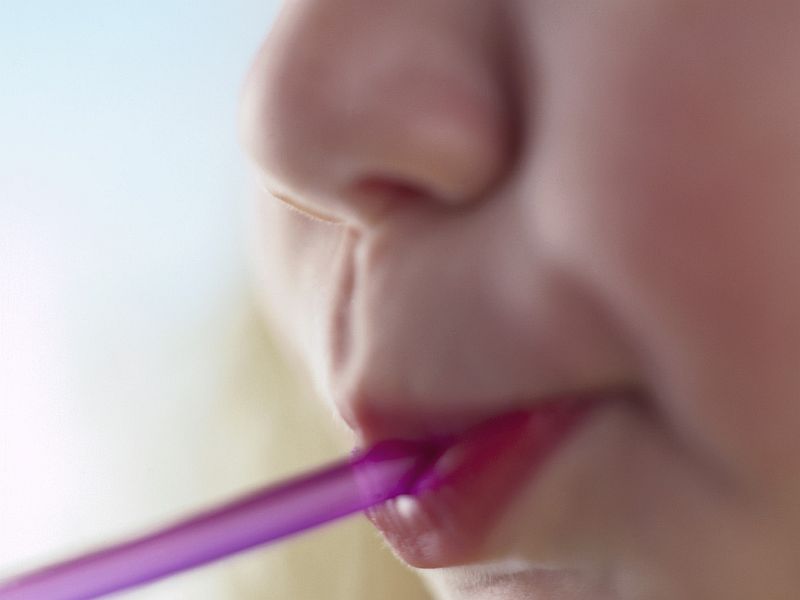
The take-home message from the new "Healthy Drinks, Healthy Kids" guidelines: Cut down on sugary sodas, juices and the like, and favor breast milk or cow's milk for youngsters instead of trendy plant-based milks.
"As a pediatrician, I know what a child drinks can be almost as important as what they eat, in terms of a healthy diet. This is especially true for very young children," said Dr. Natalie Muth, who represented the American Academy of Pediatrics (AAP) on the expert panel. Muth spoke in a news release that accompanied the new guidelines.
"We know that children learn what flavors they prefer at a very early age - as young as 9 months - and these preferences can last through childhood and adulthood," she added. "That's why it's important to set them on a healthy course, and this guide will help parents and caregivers do that."
The recommendations were created by experts at the AAP, the American Heart Association, the Academy of Nutrition and Dietetics and the American Academy of Pediatric Dentistry.
With an epidemic of childhood obesity firmly in place in the United States, anything parents can do to cut down on empty calories and boost nutrition is crucial.
From birth up to age 5, the recommendations are:
- 0-6 months: Breast milk is best, or use infant formula.
- 6 to 12 months: Stick with breast milk or formula, and as baby starts to take in solid foods, try introducing water so your infant gets used to the taste. Avoid fruit juices - it offers no nutrient boost compared to whole fruit, the experts said.
- 1 to 2 years: Now's the time to add in whole milk, and more water, to your child's diet. Fruit juice - and only 100% "real" juice - can be given in small amounts, although, again, whole fruit is better.
- 2 to 5 years: Stick with milk and water, and move kids to skim or 1% milk. A small amount of 100% juice is OK.
Noticeably absent from the recommendations are plant-based milks such as rice, soy or almond milks.
"In the last five to 10 years there has been an explosion of interest in plant-based milk. More and more parents are turning to them for a variety of reasons and there's a misconception that they are equal somehow to cow or dairy milk, but that's just not the case," Megan Lott, deputy director at Healthy Eating Research, explained to CNN.
Lott, who helped devise the new guidelines, stressed that plant-based milk products simply don't have enough of the crucial nutrients -- such as vitamin D and calcium - that children can gain from cow's milk. So the only exceptions to the guideline might be if a child is lactose intolerant, or if a family is strictly vegan or has religious rules against cow's milk.
Also a no-no for kids: Any drink with caffeine in it. Besides coffee and tea that also includes many sodas, of course.
Sodas, even the artificially sweetened kind, are out generally, the panelists said, "as these beverages can be big sources of added sugars in young children's diets and provide no unique nutritional value."
Nancy Brown, CEO of the American Heart Association, stressed that the heart troubles and diabetes currently plaguing millions of Americans often have roots in habits that began in early childhood.
"Nearly 40,000 people in the U.S. die each year from heart problems due to overconsumption of sugary drinks," she noted in the news release. "This is unhealthy and unacceptable, and the seismic shift in our culture needed to change this status quo must start with our kids."
And don't forget kids' teeth, either, said Dr. Kevin Donly, president of the American Academy of Pediatric Dentistry.
"Choosing drinks wisely for your child is crucial to good oral health; that's why we talk about it during the age-one dental visit," Donly said in the news release. "A child with a healthy smile can eat, speak, play, and learn more easily than a child suffering from tooth decay."








0 Comments